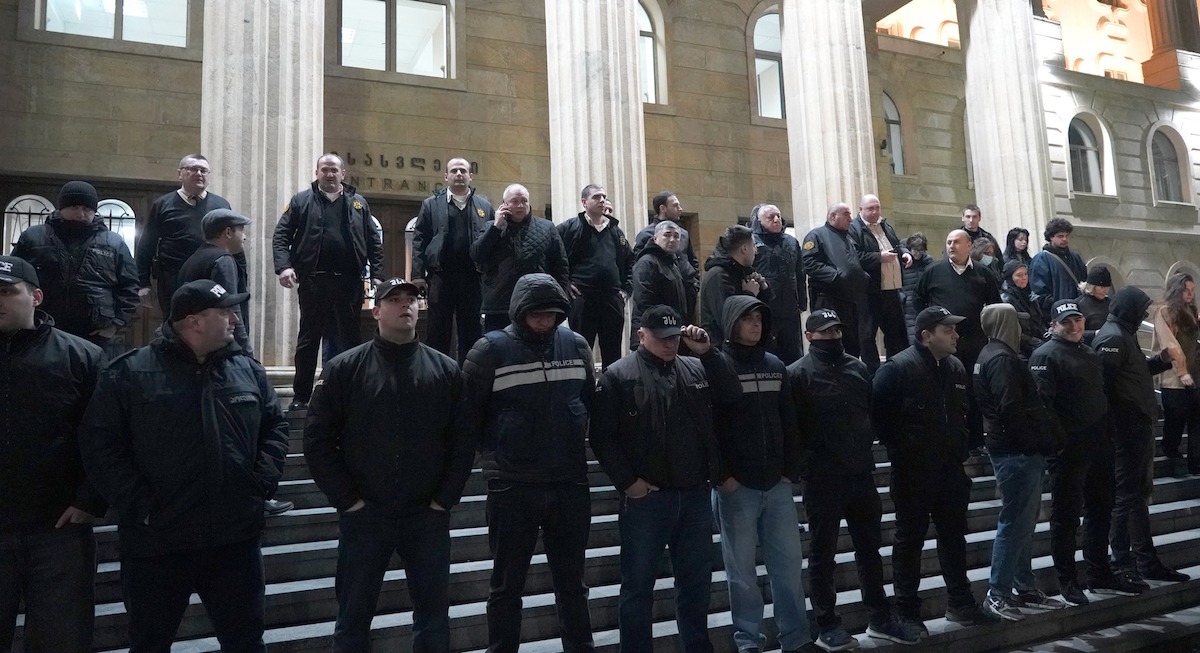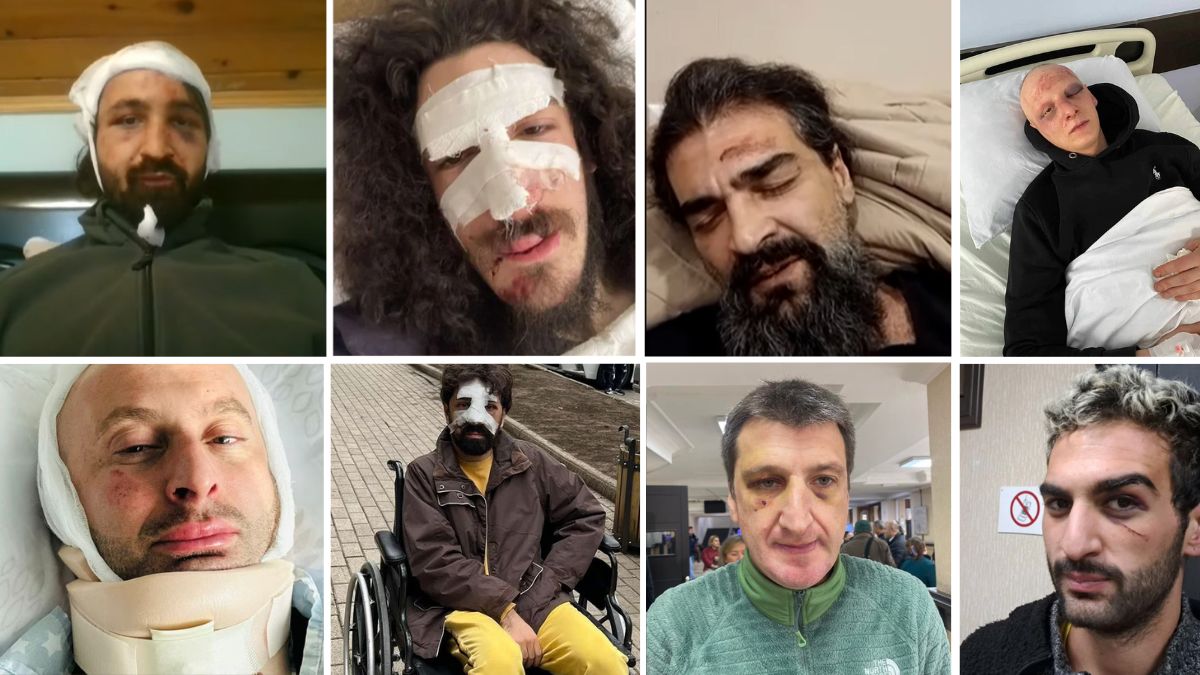Amnesty International launches campaign to punish police for protest violence in Georgia
Amnesty International: punish Georgian police for brutality
The international human rights organization Amnesty International has launched a global campaign urging the Georgian authorities to hold those responsible for violence against protesters accountable.
Mass pro-European demonstrations have been ongoing in Georgia since November 28, 2024, after Prime Minister Irakli Kobakhidze of the Georgian Dream party announced the suspension of EU accession talks until 2028.
The main demands of the protesters are to hold new, fair parliamentary elections as a legal way to change power in the country, and to release detained demonstrators.
Amnesty says that the office of the Georgian Ombudsperson has recorded at least 240 cases of torture and ill-treatment, though the actual number is likely higher.
The statement notes that the failure to hold police officers accountable for violence fosters impunity and violates Georgia’s constitution as well as its international obligations.
Denis Krivosheev, Amnesty International’s Deputy Director for Eastern Europe and Central Asia, said that “Georgian authorities must stop dispersing and beating protesters and end the selective use of criminal law against them.“
What does Amnesty International say?
“Since 29 November 2024, people in Georgia have been continuously protesting repressive laws and the government’s move to pause the EU accession process. The authorities have violently suppressed these protests, with reports of torture and ill-treatment of hundreds of protesters.
The Georgian government must investigate these human rights violations, hold police officers accountable for their actions, and prevent future abuses.
While the global media coverage of the Georgian protests has largely disappeared, the authorities have intensified their crackdown on protesters, resorting to the use of disproportionate force, exaggerated charges, torture and other ill-treatment, and gender-based violence.
Although the Public Defender’s Office documented over 240 instances of torture and ill-treatment of protesters, with 85 of those being officially granted victim status, the numbers are most likely higher.
Defying state repression, women protesters have become symbols of courage – but also the target of humiliation, abuse and psychological violence, including from law enforcement.
Yet to date not a single police officer has been brought to account.
Failure to hold law enforcement accountable for these violations encourages impunity and is in breach of Georgia’s Constitutional and international human rights commitments.
People in Georgia have been using various avenues to make the authorities act. The international community must stand in solidarity and help protect the right to protest! ”
Since Irakli Kobakhidze’s announcement on November 28, 2024, that Georgia is suspending the launch of EU accession talks, large-scale protests have taken place in Tbilisi and other major cities. There are also many smaller pockets of resistance and protest.
According to the Georgian Young Lawyers’ Association (GYLA), 319 protesters were beaten by special forces during dispersals, many of whom required medical assistance and even surgery. One person required emergency resuscitation.
To date, not a single case has been opened over violence against demonstrators.
The main injuries were not caused by water cannons or other special equipment, but by beatings at the hands of special forces officers. Most of the victims suffered concussions. Facial bone fractures, broken noses, injuries to the eye sockets, and multiple bruises are among the most common injuries.
The violence by law enforcement officers has been reported by detainees themselves as well as by lawyers providing them with free legal aid.
During the first days of the protests, law enforcement officers also brutally assaulted journalists covering the demonstrations. Since the protests began, more than 140 journalists have been affected, over 70 of them injured. Some required serious medical treatment.
Accounts from injured journalists, as well as video footage from the scene, indicate that law enforcement officers deliberately targeted them.
News in Georgia




















